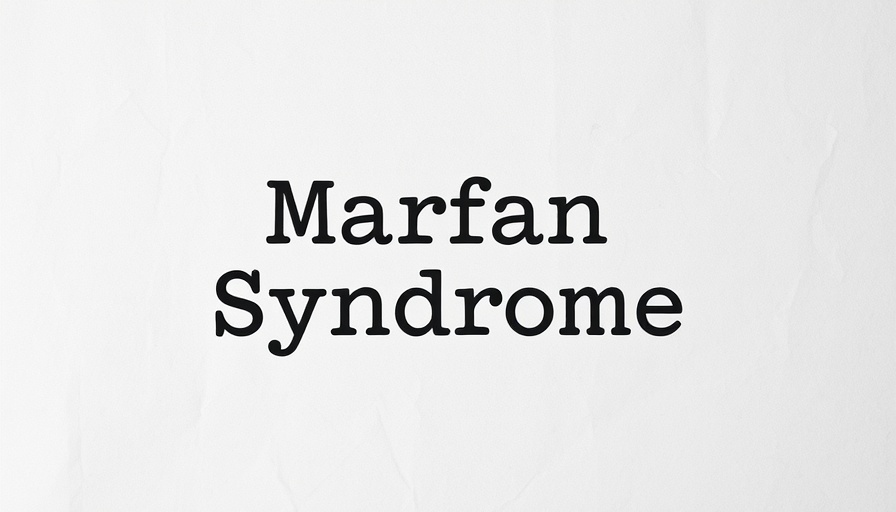
The Milestone Designation of Allopurinol in Marfan Syndrome Treatment
Marfan Syndrome, a genetic disorder affecting the body's connective tissues, has long lacked effective treatment options. Recently, researchers have achieved a significant breakthrough by designating Allopurinol as the first orphan drug to target this condition. This milestone not only represents hope for patients but sets a precedent in the realm of rare disease treatments.
Understanding Marfan Syndrome
Marfan syndrome primarily affects the heart, lungs, blood vessels, and skeleton. It can lead to serious complications, including cardiovascular problems, which are the most common cause of mortality among those with the condition. Current management strategies primarily focus on monitoring and treating symptoms rather than addressing the root causes. The announcement regarding Allopurinol marks a turning point, offering a pharmacological approach to intervene in the underlying pathology.
The Role of Allopurinol Beyond Gout
Allopurinol, traditionally used to manage gout by decreasing uric acid levels, has shown potential in various other medical applications. Its designation as an orphan drug for Marfan syndrome is based on recent research that indicates it may help mitigate the symptoms associated with the condition by bettering vascular health. This move reflects a growing trend in pharmacology where existing drugs are repurposed to treat conditions they weren't originally designed for, optimizing the existing medical infrastructure.
Expert Opinions on the Drug’s Potential
Experts in genetic disorders are optimistic about the potential of Allopurinol in treating Marfan syndrome. By targeting the metabolic pathways affected in these patients, researchers believe they might reduce the progression of complications, significantly improving the quality of life for those afflicted with this syndrome. This is particularly crucial because Marfan patients often live with chronic pain and anxiety regarding their health due to the unpredictability of the disorder.
Broadening Horizons: The Future of Orphan Drugs
The approval of Allopurinol as an orphan drug for Marfan syndrome underscores the importance of developing treatments for rare conditions that often go overlooked. The orphan drug designation offers various incentives for pharmaceutical companies, including market exclusivity and tax benefits, encouraging the exploration of previously underfunded research areas. This can lead to more innovative therapies for a multitude of rare diseases, potentially altering the landscape of treatment options available to patients.
Practical Implications for Patients and Families
For families affected by Marfan syndrome, the approval of Allopurinol represents not just a medical advance, but a beacon of hope. Patients can anticipate more comprehensive treatment plans that address the chronic challenges they face. Physicians, armed with new information on Allopurinol's efficacy, will be able to provide informed recommendations, enriching the standard of care for patients.
Conclusion: A Call for Continued Research and Awareness
The future of treatment for Marfan syndrome looks promising with breakthroughs like the designation of Allopurinol as an orphan drug. As research continues, it's vital for patients, families, and medical professionals to stay informed about new developments. A collaborative approach in advocacy for awareness and funding for further research can uphold this momentum, ultimately providing better health outcomes for those impacted by rare diseases.
 Add Row
Add Row  Add
Add 




Write A Comment